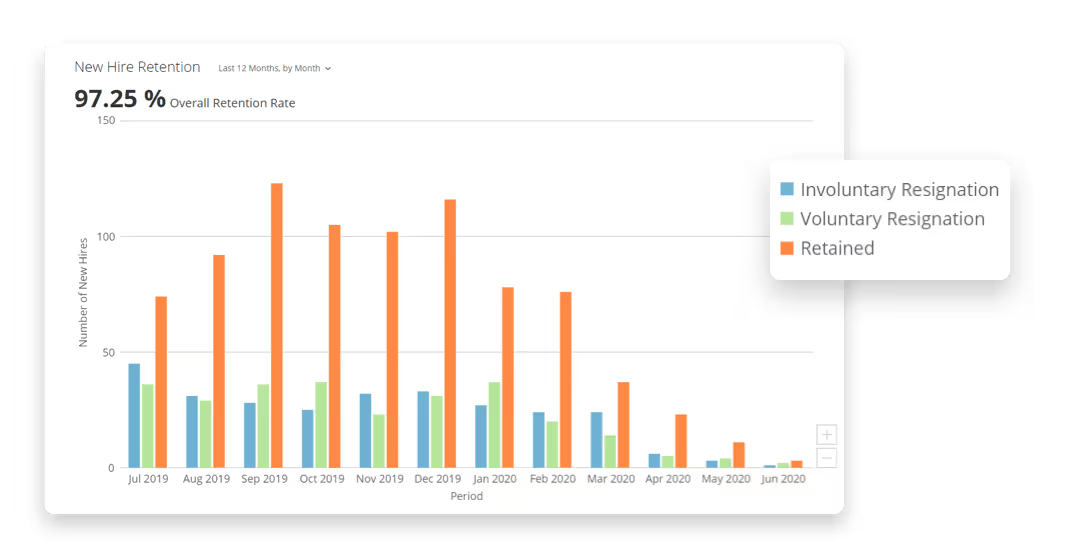
Se ahorraron cientos de horas de procesos manuales al predecir la audiencia de juegos al usar el motor de flujo de datos automatizado de Domo.

The industries that use data science are beginning to innovate more and more. With the help of APIs, there’s no limit on how far data science can evolve. APIs give businesses access to understandable data that can be used to fuel innovation and growth. They help open up new markets, inspire new business models, and enable business partnerships to form.
Because APIs help business users gather actionable insights to make more informed business decisions, industries can continue to create and break new ground, as we’ve seen with the innovations in healthcare, finance, cybersecurity, and the automotive industry.
With more businesses becoming data-driven with the help of APIs, the future of data science is unlimited.
Data science applies advanced analytic techniques and scientific principles to data to form actionable insights and inform better decision-making. The insights gathered from data science can help businesses increase operational efficiency, identify new opportunities, and improve systems. Data science is a way to apply what is learned to real-world applications.
Data science also incorporates various disciplines, including data engineering, data preparation, data mining, predictive analytics, machine learning, and data visualization.
A data science platform is software that includes various technologies for machine learning and other advanced analytics uses. A data science platform allows data scientists to discover actionable insights, communicate those insights, and plan strategically and proactively.
Think of data science in terms of the future and business intelligence (BI) in the present. Data scientists deal with more specific predictive and prescriptive analytics and look at what will happen; business users deal with more generalized and descriptive analytics to see what has already happened.
For BI to work, data needs to be integrated with the support of ETL (extract, transform, and load) tools. ETL tools load data into one centralized location and turn raw data into actionable information that businesses can use to make more informed and strategic decisions.
ELT software can be seen as the future of ETL as it streamlines the data loading process. It is a data integration process where data is extracted from one or multiple sources and loaded into a target data system. And instead of transforming the data before it’s loaded as with ETL tools, ELT software uses the target system to transform the data.
A data science platform puts the data modeling process into the hands of data scientists. With this immediate access to data, data science teams can gather actionable data insights and communicate them to business stakeholders to inform better decision-making. As a result, data science can provide customer insights, help with financial risk management, block cyberattacks, optimize supply chain management, and streamline customer service.
Data science platforms support data scientists by helping them run, track, reproduce, share, and deploy models fast and efficiently. A data science platform helps on an organizational level by connecting people, tools, and products across the data science lifecycle.
What takes data science a step further is the additional help of APIs. APIs serve as the essential building blocks for data science, providing key data sources that enable data integration and visualization. In other words, APIs help make complex data and advanced analytics easier to understand so business users can gain the actionable insights they need to make informed business decisions.
APIs for data science are useful as they’re essential building blocks. They are pieces of code that can be put together to enhance applications and websites. For example, speech recognition APIs like chatbots improve the connection between models and consumers. And machine learning APIs bring together predictive analytics so businesses can better understand their customers.
Data science is consistently evolving, and it has the potential to grow beyond its current capabilities with the additional help of APIs. APIs enable different industries to innovate, improve, and become more data-driven. Additionally, they pave the path for new business partners and help with app development. APIs have the potential to make advanced analytics more understandable so that better business forecasting can take place.

When it comes to data science platforms, it’s important to look for self-service capabilities that help increase data democratization across teams. And it’s important to decide if you prefer an open data science platform or a closed data science platform. Open data science platforms enable data scientists to choose programming languages and packages and the right tools for the job. Conversely, closed data science platforms allow data scientists to use platform-specific programming languages and packages and limit the use of different tools.
Something else to consider are APIs, as they are essential building blocks for data science. They can ingest data and help it get onto other platforms and enable data integration and visualization. Your tool will need to be able to support ingesting data via API and creating ways to easily share critical data out of the platform via API.
Domo’s data science suite enables businesses to deliver the metrics they need to get predictive and strategic insights when they need them. For example, bespoke modeling gives businesses a 360° view of different customer segments for cross-selling opportunities and customer retention strategies. With Domo, you can accurately identify customers who are at risk of attrition and take proactive steps to mitigate that risk.
Domo also provides data classification and forecasting, custom scripts for analysis, and determines a statistical approach to help improve efficiencies and decision-making. Domo’s various data science tools let you harness the power of data science to prepare data and create predictive models, whether you’re a data scientist or a business user.

Data science is used for predictive modeling, pattern recognition, anomaly detection, classification, categorization, and innovation.
Specifically, data science has allowed for all of the following:
With Domo, you can leverage prescriptive early warning systems to remediate fraud risk ahead of time.
